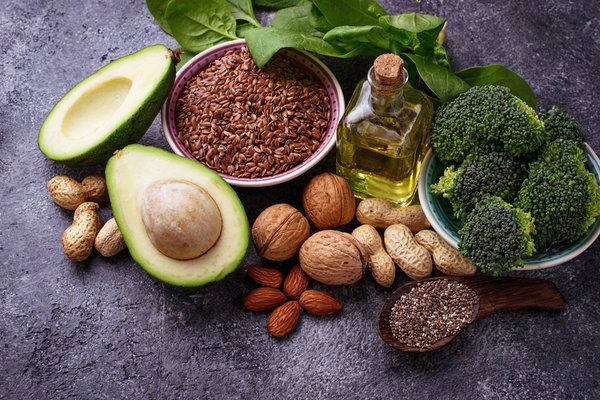
As of late, useful nourishments have become an inexorably famous popular expression for a valid justification. With the expansion in unfortunate dietary propensities in America, our populace is encountering a remarkable flood in way of life illnesses.
Coronary sickness is the primary wellspring of death for the two individuals. One in every four passings in America is brought about by coronary illness. Somebody in this nation has a respiratory failure at regular intervals. Every moment, more than one individual in the United States kicks the bucket from a stroke. These days technologies have improved and with the help of online pharmacies you can get your online prescriptions and free medication delivery at your doorstep
Changes in ways of life are fundamental to lessen the danger of creating heart-related medical problems. Eliminating smoking and drinking liquor, practicing routinely, and eating well are essential advances.
Diet can assume an enormous part in deciding if you can carry on with a long and productive life. Certain “practical nourishments” have been demonstrated to be exceptionally successful in keeping up ideal heart wellbeing. You will need a health and wellness coach to plan your diet
What Are Functional Foods?
Not all nourishments have a similar micronutrient and macronutrient content.
Useful nourishments are food sources that give medical advantages past essential sustenance. Studies have indicated that specific supplement thick nourishments advance ideal wellbeing and help lessen the danger of illness.
The Academy of Nutrition and Dietetics characterize utilitarian nourishments as “entire nourishments alongside strengthened, advanced, or improved food sources that have a conceivably gainful impact on wellbeing when expended as a component of a shifted diet consistently at successful levels dependent on huge norms of proof.”
For instance, a bowl of white rice doesn’t give any perceptible healthy benefit separated from sugars. Nonetheless, a bowl of oats contains solvent fiber that can help lower cholesterol levels. This qualifies it as a “useful food.”
With regards to utilitarian nourishments, specialists state that they ought to be expended as “entire food sources” instead of enhancements. Entire nourishments are more productive because all the mixes inside the food work synergistically.
How Food Can Improve Heart Health
Your heart wellbeing is a mind-boggling capacity with numerous factors, for example, circulatory strain and blood vessel work. Studies show that a more noteworthy admission of nourishments, for example, verdant green vegetables can fundamentally improve heart wellbeing.
Each new examination highlights a solid connection between diet and coronary illness. What you put on your plate has an immediate bearing on levels of cholesterol, fatty oils, and aggravation.
Fortunately, we’re increasing a superior comprehension of precisely how micronutrients can assist us with improving heart wellbeing.
Micronutrients That Support a Healthy Heart
Micronutrients can impact factors, for example, fatty substances, irritation, and cholesterol levels: all of which can trigger coronary illness. Regardless of whether you don’t experience the ill effects of a heart condition, eating well can essentially diminish the danger of coronary illness.
Run of the mill “garbage” food is generally stuffed with sodium, sugar, and undesirable fats. By restricting such shoddy nourishment and including solid micronutrients, we allow our hearts to work at maximum capacity.
Some fundamental heart-accommodating micronutrients are:
Omega-3 Fatty Acids
Omega-3 unsaturated fats, for example, DHA and EPA, are found in greasy fish, including fish, cod, and salmon. There are additionally littler sums in nuts, for example, almonds, walnuts, and pecans.
Here are a couple of science-sponsored advantages of omega-3 unsaturated fats:
- Omega-3s improve vein versatility
- Omega-3s may help control irritation that can in any case prompt respiratory failures.
- Omega-3s may likewise improve memory and mind-set.
- Omega 3s can help bring down the dangers of getting rheumatoid joint inflammation.
Plant Sterols and Plant Stanols
Additionally called phytosterols, plant sterols and stanols originate from plants, and they’re normally in nourishments, for example, seeds, nuts, vegetables, organic products, and vegetables.
These plant-based substances diminish the danger of cardiovascular ailment by obstructing the retention of cholesterol in the small digestive system. Studies show that this brings down hurtful LDL cholesterol without influencing levels of good HDL cholesterol.
Fusing plant sterols and stanols is an incredible method to help a heart-solid eating routine. The examination is really convincing and shows that these plant substances have cardioprotective advantages.
Calcium
A lot of nourishments are wealthy in calcium, and many don’t contain dairy. This is uplifting news, especially for vegetarians and individuals who are lactose bigoted because they can’t completely process dairy items. Snap here for a total rundown of calcium-rich nourishments.
Here are a couple of medical advantages of including calcium into your eating regimen:
- Calcium keeps up sound bones and teeth.
- Calcium assists lead with nervous motivations.
- Calcium manages the heartbeat.
The RDA of calcium for grown-ups is 1,000 mg up to age 50. Older grown-ups more than 50 ought to devour 1,200 per day.
Vitamin D
Because of the expanded time spent inside, a lot of our populace is lacking in Vitamin D.
Vitamin D can support both body and heart wellbeing from numerous points of view, including:
- Vitamin D helps keep the resistant framework working appropriately.
- Vitamin D may forestall hypertension and conduit harm.
- Vitamin D bolsters the soundness of the safe framework, mind, and sensory system.
A nutrient D insufficiency has been connected to an expanded danger of stroke, coronary illness, and cardiovascular breakdown.
The suggested dietary recompense (RDA) of nutrient D for grown-ups is 15-20 micrograms.
Fiber
Fiber is found in nuts, grains, beans, organic products, and vegetables, and numerous Americans don’t get enough, particularly through the standard Western eating routine. In addition to the fact that fiber helps lower awful LDL cholesterol and diminishes the danger of coronary illness, yet it additionally helps in processing and forestalls certain malignancies. There are two sorts of fiber: insoluble fiber and solvent fiber. Both are similarly significant, and it’s essential for a compelling, heart-solid eating routine. The RDA of fiber is 25 grams for ladies and 38 grams for men. On the off chance that you aren’t getting enough fiber from entire nourishments, food website guest post,
consider including fiber supplements, for example, psyllium husk powder, into your eating routine.
Top Functional Foods for Heart Health
While no assurance devouring specific sorts of nourishments will wipe out all danger of coronary illness, it very well may be brought down without a doubt.
Here are a few nourishments you ought to think about eating to augment your heart wellbeing:
A good xtreme fitness means that a person is physically and mentally strong and fitness refers to the ability of the person to encounter the demands of the environment. The person possessing good health and fitness can enjoy his/her life completely.
Fish
For a solid heart and ideal protein consumption, fish can be a greatly improved decision than red meat. Devouring at least a couple of servings of fish every week can help lessen the danger of a coronary episode.
The omega-3 unsaturated fats discovered normally in fish diminish irritation all through the body. This diminishes the danger of strokes.
Omega-3 unsaturated fats can bring down fatty substances, lessen blood thickening, decline circulatory strain, and limit unpredictable pulses. Salmon, trout, mackerel, and fish contain liberal measures of omega-3 unsaturated fats. A couple of plant-based sources that are wealthy in omega-3 unsaturated fats incorporate tofu, tempeh, and edamame.
A 3.5 oz serving of salmon gives around 27 grams of protein, 216 calories, and 1.4 grams of omega-3s.





